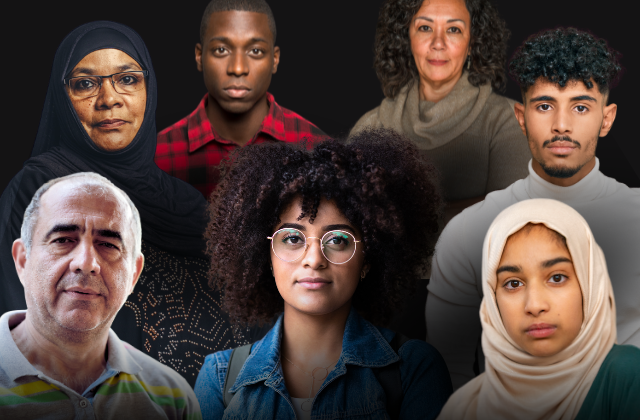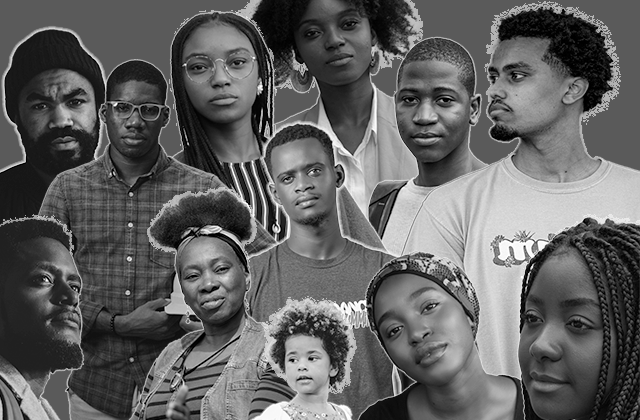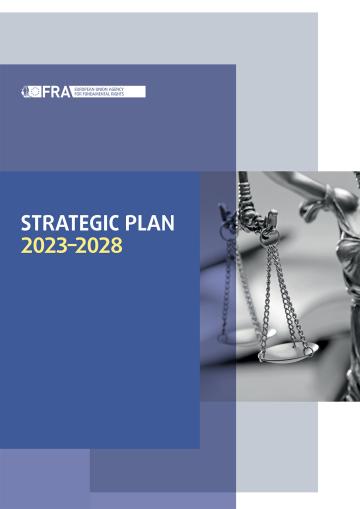
Towards a fundamental rights-compliant European Green Deal
Search inside this publication
- Introduction
- 1. A human-rights-based approach to the Green Deal
- 2. The human right to a safe, clean, healthy and sustainable environment
- 3. The Green Deal through a fundamental rights lens
-
4. Challenges from existing EU legislation and policies
- 4.1. Reinforcing existing inequalities through the green transition
- 4.2. Climate change, health and impact on vulnerable groups
- 4.3. Energy poverty and fundamental rights
- 4.4. Employment and green jobs in the just transition
- 4.5. Equal access to essential services
- 4.6. Monitoring the just transition
- Ways forward
- Abbreviations
- About this publication
With temperatures rising and the rate and severity of natural disasters increasing, efforts to mitigate the impacts of climate change are accelerating. Pursuant to its commitments under the Paris Agreement, the European Union (EU) has adopted a broad range of measures to reduce greenhouse gas emissions while transitioning the economy and the overall way of life to more sustainable and ‘green’ sources and ways.
The European Green Deal was adopted in 2019, aimed at setting the EU on the path to a green transition. It is the EU’s principal strategic measure designed to transform the EU into a modern, resource-efficient and competitive economy by ensuring that: (i) no more net greenhouse gas emissions are generated by 2050; (ii) net greenhouse gas emissions are reduced by at least 55 % by 2030; (iii) economic growth is decoupled from resource use; and (iv) no people and places are left behind.
Fundamental rights, as guaranteed by the Treaty on European Union (TEU), are both values (Article 2 of the TEU) and general principles of EU law (Article 6(3) of the TEU).
The Charter of Fundamental Rights of the European Union (the Charter) is a cornerstone of primary EU law. In 2020, the European Commission reinforced its commitment to compliance with the Charter by adopting a new strategy to strengthen the application of the Charter in the EU. It proposes that the Charter serve as a compass for EU institutions and enumerates specific actions to strengthen people’s awareness of their rights and ensure the effective implementation of the Charter by the Member States. The strategy underscores that impact assessments of EU legislative processes should address fundamental rights.
Thus, fundamental rights are an integral part of the applicable legal framework which binds the EU and Member States as they develop, adopt and implement EU secondary law. The Green Deal and related policies are therefore not implemented in a legal vacuum or fundamental rights-free zone: the Charter, applicable international human rights law and EU fundamental rights law also govern in this policy area.
The results of this initial analysis are based on desk research of a selected number of legislative files of the green transition or EU climate policy, including those of the Green Deal. They reveal a fragmented and incomplete approach to addressing the specific fundamental rights impacts of climate change and an inchoate approach to mainstreaming fundamental rights in EU climate policy generally.
The consequences of climate change already affect all Europeans’ daily lives with significant environmental, economic, social and health impacts. However, climate change particularly impacts the rights of people in vulnerable situations. Those with limited financial resources or living on the margins of poverty or in poverty, individuals experiencing discrimination based on their ethnicity or geographical background, along with children, young people and older people, or those with disabilities, are likely to suffer the most severe repercussions of climate change and environmental degradation. European Union Agency for Fundamental Rights (FRA) reports show that Roma people, who are the largest minority in Europe, face high numbers of housing deprivation, discrimination and poverty. Every second Roma person lives in damp, dark dwellings or housing without proper sanitation facilities, and every fifth person has no access to tap water inside their dwelling. The European Environmental Bureau, Europe’s largest network of environmental citizens’ organisations, describes such a ‘push to the wastelands’ as environmental racism against Roma communities. Similarly, the 2024 European Environmental Agency (EEA) report on climate risk assessment shows that climate change can exacerbate existing risks and crises, leading to system-wide challenges affecting whole societies, with vulnerable social groups particularly affected.
While the EU and its Member States have committed significant funding and programmes to reach the climate targets, these implementing policies and measures rarely reflect fundamental rights explicitly. The Communication setting out the Green Deal does not specify how the Charter or fundamental rights obligations that Member States have under EU or international law should be complied with when implementing the Green Deal. In its commitment to tackle climate change, the EU has established as an aim of the Green Deal that the transition be just and inclusive and put people first, emphasising that such a socially just transition be reflected in EU policies and at the national level. The Green Deal stresses the need to tackle energy poverty and ensure a fair transition, including through designing measures for households unable to afford key energy services, financing renovation schemes and reducing energy bills.
In its Strategic Plan 2023–2028, FRA identified climate change as one of seven key megatrends with implications for fundamental rights. In 2023, the agency launched an initial project looking into the fundamental rights challenges of the green transition, with a specific focus on people in vulnerable situations and the principle to leave no one behind.
In the context of the agency’s emerging research on environmental protection, this paper explores the Green Deal through a fundamental rights lens, including its commitment to a just transition and to leave no one behind. It marks a first step to raise awareness about the relative absence of fundamental rights in EU climate policy and the need to mainstream fundamental rights in future climate legislative and policy files. It reflects on how the systematic, explicit and comprehensive application of fundamental rights as part of a human-rights-based approach (HRBA) to climate policy could advance a just and inclusive transition.
This paper does not purport to offer a comprehensive analysis of the implementing legislation and policy files of the Green Deal. However, it provides a preliminary appraisal of the extent to which fundamental rights are reflected in said files and finds that it is limited and ad hoc. This paper is based on initial desk research which sought to identify and analyse key elements of the Green Deal with potential impact on fundamental rights. The research explored whether and how selected legislative measures adopted under the Green Deal had an explicit link to rights, freedoms and principles referred to the Charter or reflected the nexus of fundamental rights as general principles of the Union's law pursuant to Article 6 of the TEU. The paper addresses EU institutions, policymakers in Member States and other stakeholders concerned with environmental policy and fundamental rights, with the aim of raising awareness about the need to take fundamental rights into account in strategies and legislation aimed at implementing the Green Deal.
This paper provides an overview of the relevant and applicable fundamental rights obligations of Member States and EU institutions as they implement the Green Deal, and can serve as a baseline for further research and analysis to inform future policies. Consistent with the Commission’s communication on the Green Deal, it considers how fundamental rights obligations and principles can be leveraged to ensure that the ‘Green Deal can make consistent use of all policy levers: regulation and standardisation, investment and innovation, national reforms, dialogue with social partners and international cooperation.’
The first section of the paper outlines the elements of a hypothetical HRBA to the Green Deal. In the second section, the paper discusses the EU’s and international human rights obligations to ensure a safe, clean, healthy and sustainable environment. The third section provides an overview of the elements of the Green Deal with potential implications for social rights, particularly for the EU funds, the EPSR, specific action to tackle energy poverty and the EU environment programme to 2030. The fourth section sheds light on challenges and risks if fundamental rights are not explicitly taken on board in the implementation of the Green Deal. The ‘Ways forward’ offer preliminary suggestions of how an HRBA can be developed and fundamental rights strengthened in the EU’s green transition.












